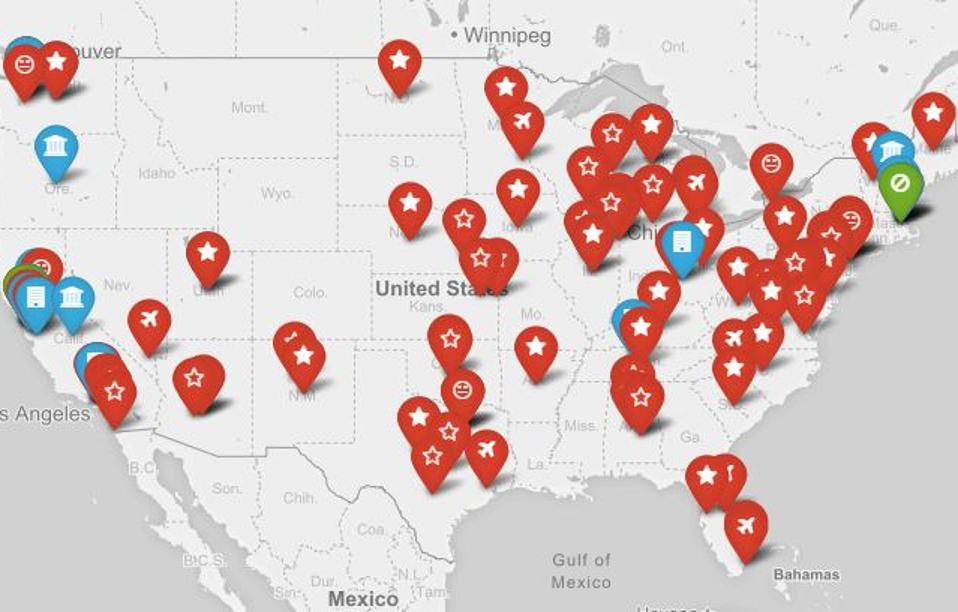This Maps Shows Which Cities Are Using Facial Recognition Technology—And Which Have Banned It
By TheWAY - 7월 18, 2019
Nonprofit advocacy group Fight for the Future is pushing for an outright ban of government use of facial recognition technologies.
GETTY
As government use of facial recognition technology becomes more widespread, the digital rights nonprofit Fight for the Future has created an interactive map that shows where in the United States it’s being used and where it’s being resisted.
The map draws on news reports and research to show the ways that state and local governments have rolled out facial-recognition-related initiatives, like where agencies are scanning driver’s license databases or screening passengers on international flights, as well as which cities have banned local government from buying or using the technology or are considering legislation to that effect.
The map also shows all the places where police have formed partnerships with Amazon’s home security subsidiary, Ring. Police departments across the country have given residents free or discounted doorbell camera systems and encouraged people to share their security footage, creating what privacy advocates describe as an unprecedented surveillance network.
A spokesperson said that the Ring system does not use facial recognition technology.
The map uses icons to represent different instances of facial recognition technology usage or resistance.
COURTESY OF FIGHT FOR THE FUTURE
Fight for the Future launched the map as part of its push for a nationwide ban on facial recognition technology, which it says threatens civil liberties and would have a chilling effect on free expression.
“The goal of the map is to educate people about where facial recognition technology is being used across the country and the different ways that it’s happening and then give them the tools to do something about it,” Fight for the Future deputy director Evan Greer tells Forbes. People who sign up on the group’s website will receive advocacy tool-kits to help them organize around the issue.
Proponents of facial recognition—which typically identifies people from video or photos by comparing their facial features with those in a database—says it can help solve crimes (or stop them before they happen), while critics point to studies that show the technology to be error-prone, particularly for people of color, and say the negative consequences of ubiquitous surveillance outweigh possible benefits.
Lawmakers recently held a series of hearings on facial recognition technology, with senators on both sides of the aisle expressing concerns about potential consequences of government usage, though without any real agreement on what national regulation could look like.
So far, local governments have led the way. Earlier this week, Oakland, California became the third city to ban its government agencies from buying or using facial recognition technology for any purpose, following San Francisco and Sommerville, Massachusetts. Several states are also considering bills that would place moratoriums on the technology.
Greer says the map—which you can view here—likely isn’t comprehensive due to the secrecy around facial recognition but that Fight for the Future team plans to update it regularly as new information surfaces.





0 개의 댓글